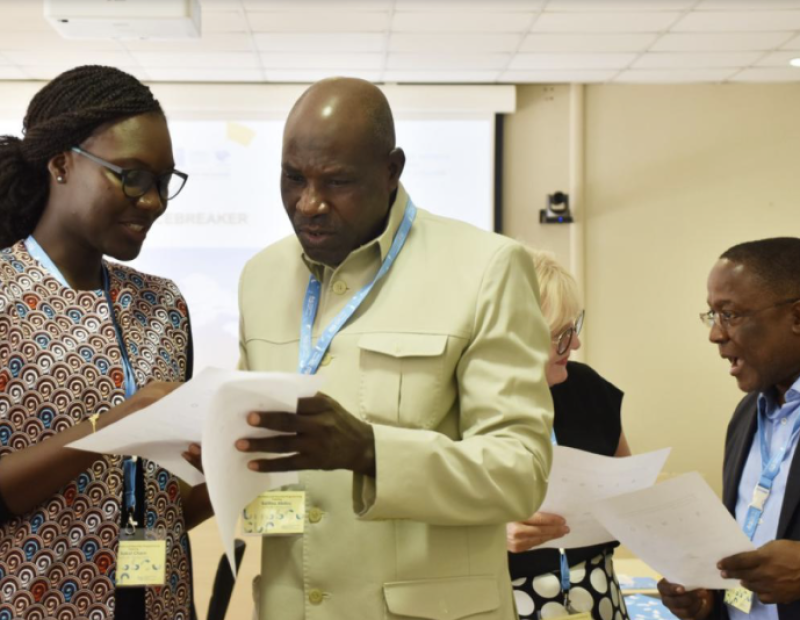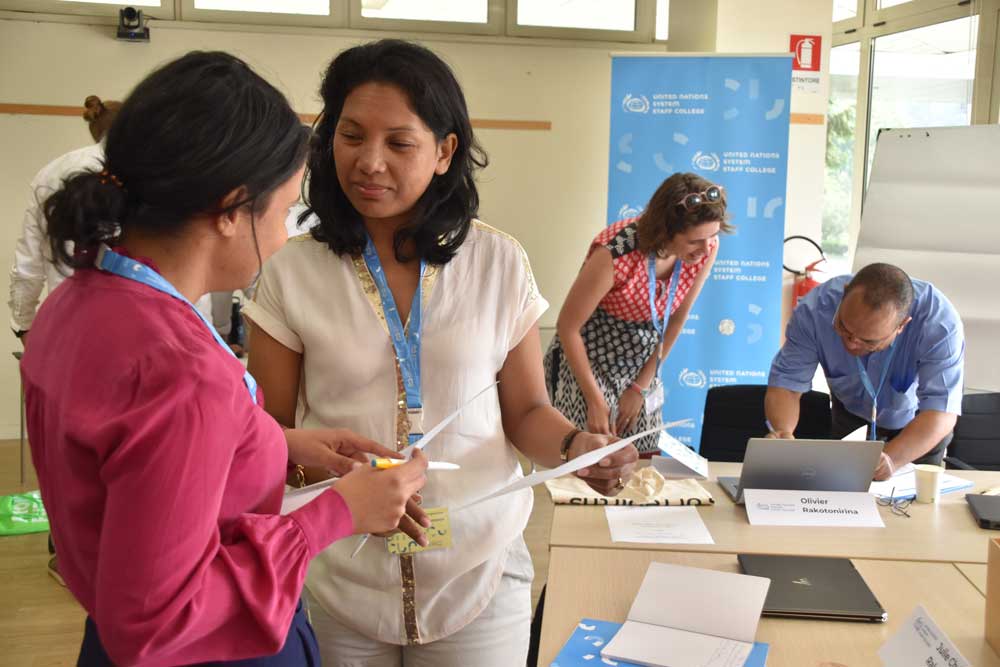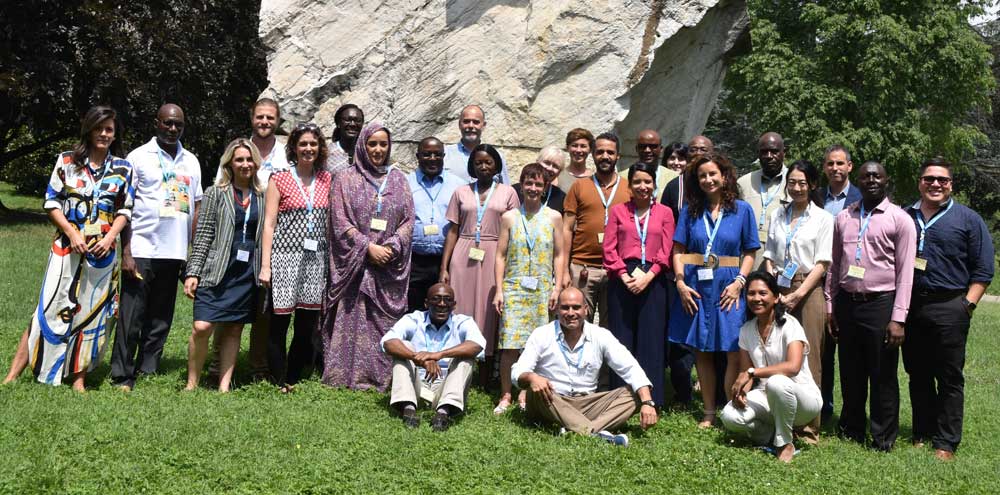

Climate shocks and stressors, be they rapid-onset such as floods and storms, or slow-onset such as rising temperatures and changing rainfall patterns, are increasing in frequency and intensity the world over.
In fragile and conflict-affected contexts, their interaction with existing vulnerabilities such as food insecurity, poor governance, and economic weakness may enhance hardships and grievances and sometimes risk heightening tension and conflict. The United Nations Secretary-General's Peacebuilding Fund (PBF) is the United Nations (UN) system's financial instrument of first resort to sustain peace in countries or situations at risk or affected by violent conflict. Since 2017, the PBF has invested over $100 million towards climate, peace and security efforts through its projects across the world.
DPPA’s Peacebuilding Support Office (PBSO), together with the United Nations System Staff College, the Climate Security Mechanism, and independent think tank Adelphi, co-organized the Climate, Peace and Security Programming Training. This training which is a response to the findings of the PBSO’s newly launched Thematic Review on Climate Security and Peacebuilding 2023, provided an opportunity for participants to improve their programming capacity and project design for new national and cross-border peacebuilding projects being developed for the Peacebuilding Fund. Participants from UN agencies, funds and programmes in Guatemala, Haiti, Honduras, Madagascar, Mauritania, Niger, South Sudan, and The Gambia representing Food and Agriculture Organization of the United Nations (FAO), International Labour Organization (ILO), International Organization for Migration (IOM), Office of the High Commissioner for Human Rights (OHCHR), United Nations Capital Development Fund (UNCDF), United Nations Development Programme (UNDP), United Nations Educational, Scientific and Cultural Organization UNESCO, United Nations Environment Programme (UNEP), UN Women, World Food Programme (WFP) and the PBF Secretariat came together with their diverse expertise, experience, and perspectives, allowing for new and innovative ideas to emerge.

Thanks to the hands-on nature of the training, participants benefitted from dedicated sessions to present PBF project proposals under development and receive concrete feedback from the training team and their peers. The similarities and scale of challenges and needs identified in countries across Africa, Latin America and the Caribbean confirmed the relevance for the UN to adopt a proactive approach in dealing with climate-related risks to peace and security. Some of the main takeaways from the discussion include:
The training successfully concluded after two and a half days of exchanges. As participants move forward with the development and implementation of their climate security projects, new learnings on the field of climate security programming will emerge to improve the quality and quantity of PBF and UN support to fragile and conflict-affected countries. UNSSC and the PBF will also bring forward learnings from this training into a second iteration to be held before the end of 2023. The next training will aim to strengthen the capacity of PBF Secretariats to support the development, implementation and monitoring and evaluation of climate security projects, and to offer tools and techniques for the facilitation of discussions and knowledge sharing activities with key counterparts around climate, peace and security.

Originally published on UNSSC.org